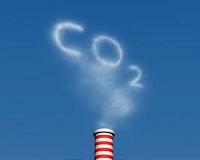 |
Duesseldorf, Germany (UPI) May 13, 2011 Eon and RWE, Germany's largest utilities, reported first quarter losses because of unforeseen volatility in domestic and international energy markets. Eon's profit before interest and tax fell 23 percent to $4.9 billion in the first quarter of this year, the company said this week, citing "extraordinary business and energy-policy challenges" that include high commodity prices because of the nuclear crisis in Japan and a temporary shutdown of seven nuclear power reactors in Germany. "Losses at the gas midstream business and lower profits at the U.K. retail business, declining power prices and generation margins in Southern Europe and lower earnings at regional distribution networks in Germany were the main negative factors," for the result, Eon said. The company posted higher earnings with its gas production and renewable energy units, Eon said. The operating result of competitor RWE fell 5 percent to $4 billion, with the recurrent net income falling 7 percent on the same period in the previous year, to $2.3 billion. "The transformation of the energy market mandated by the German government is a Herculean task which will place huge demands on the investment capability of the industry," RWE Chief Executive Officer Juergen Grossmann said in a statement. "To do this the industry needs clear framework conditions as soon as possible." Both companies' first quarter result was weighed down by unsuccessfully energy trading. Eon's trading arm lost nearly $44 million before interest and tax, compared with a $2.8 million loss a year earlier. RWE's Trading and Gas Midstream unit lost $389 million, more than three times what it lost in the same period last year. Energy markets have been rather volatile in recent months, with the uprisings in North Africa and the Middle East pushing crude futures higher. After the Japanese nuclear crisis, Germany decided to close seven nuclear reactors for safety checks and said they may not be restarted, sowing fresh insecurity across power markets. When German Chancellor Angela Merkel in March announced she would drop nuclear as soon as possible, it came as a surprise to many as it meant a U-turn from her previous policies. Despite strong public opposition, Merkel last year decided to extend the running times of the German reactors until the mid-2030s, scrapping a 10-year-old decision taken by the Social Democrat/Greens government to phase out nuclear power in Germany by 2022. The German utilities agreed to this extension in return for a nuclear fuel tax that costs Eon around $280 million per quarter. If Berlin scraps the extension, Eon will challenge the tax in court, the company has said.
Share This Article With Planet Earth
Related Links
 Direct Air Capture of CO2 with Chemicals
Direct Air Capture of CO2 with ChemicalsWashington DC (SPX) May 10, 2011 The American Physical Society has released a new assessment - Direct Air Capture of CO2 with Chemicals - to better inform the scientific community on the technical aspects of removing carbon dioxide from the atmosphere. In systems achieving direct air capture (DAC) of carbon dioxide (CO2), ambient air flows over a chemical sorbent, either liquid or solid, that selectively removes the CO2. ... read more |
|
| The content herein, unless otherwise known to be public domain, are Copyright 1995-2010 - SpaceDaily. AFP and UPI Wire Stories are copyright Agence France-Presse and United Press International. ESA Portal Reports are copyright European Space Agency. All NASA sourced material is public domain. Additional copyrights may apply in whole or part to other bona fide parties. Advertising does not imply endorsement,agreement or approval of any opinions, statements or information provided by SpaceDaily on any Web page published or hosted by SpaceDaily. Privacy Statement |